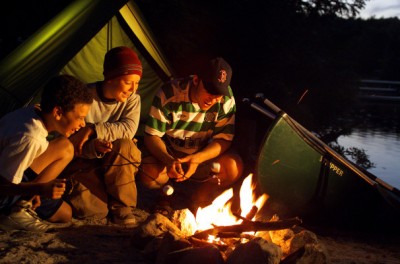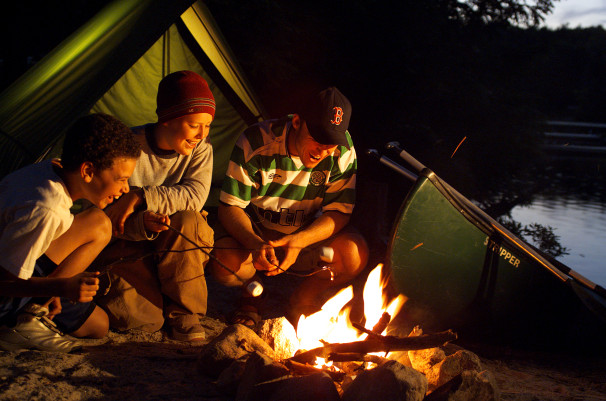
As I write this here in Missouri, rabbit season opens in just four short days. Time to break out the shotguns and give them a good preseason cleaning and checkup. The kids and I will be attending to this business over the next couple of days, and soon rabbit will be back on the menu. We have spent the summer months watching the rabbit population grow, and the girls in particular have been charting out the best locations to find their quarry when opening day comes.
I am proud of my kids for this. They are showing that they have grasped and grabbed hold of at least some of the survival skills that my wife and I have tried to impart upon them. First, they have recognized where food comes from — that cute and fuzzy can also be nourishing and tasty. They have taken time to watch their surroundings, to use tracking and observation to increase their odds of success in the pursuit of wild game. They are bold and unhesitant in their desire to put wild food on the table. In short, they are learning to live with and not just in their surroundings.
Hunting is a valuable survival skill, but it really isn’t the key to a long-term survival situation. When the chips are down, everybody and his brother will turn to the woods and game will be depleted rapidly. The skills, however, that will be honed in my children by hunting will last long after the game is gone.
By hunting, kids develop proficiency with weapons and familiarity with the damage that they can do, and through this they develop respect for their weapons. They learn to be tuned into their surroundings, to let nature tell them when subtle things have changed. They learn to track, to stalk, and to ambush, and to not be seen by the objects of their pursuit. They learn to see the world around them with clarity and precision, to grasp the little details. Basically, they are developing situational awareness while bearing arms, and developing skills that would serve well in escape and evasion; they are learning to be survivors.
Through the sport of hunting, a large number of skills applicable to survival situations are developed. This is the best tactic to take when teaching survival skills to kids. Find activities that are fun and engaging while at the same time growing a skill set. Don’t focus on drilling in survival skills but let them grow naturally from genuine interests.
Camping is another great activity to develop survival skills. Not the modern motor home full of electronics variety of camping, but the “Hey, grab your gear, we’re sleeping out at the pond tonight!” kind of camping. On small adventures like these your kids can learn skills like shelter-building. Don’t bring a tent; press their creativity by challenging them to create shelter with the tools in their kit and the materials in their environment. Guide them in the process of creating a shelter from a poncho and paracord, in how to build a debris shelter, and in properly backing a fire to reflect heat into the shelter. Guide them through fire-building using a fire steel and tinder, and let them learn campfire cooking with hotdogs and marshmallows. At late-night camp fires they can begin to get an appreciation of watch standing, listening to the night sounds around them. Your kids can also relearn the ancient art of enjoying the company of their family and not relying on a computerized box to tell them when they are having fun. Notice I said “guide,” not “instruct”? Above all these should be fun times, not boot camp. Lessons learned with a happy heart become fond memories, and fond memories last a lifetime.
Through activities like hunting and impromptu camping, your kids will develop the skills that will give them the confidence to face the initial stages of a crisis on their own, should the need arise. Make sure that they become familiar with every piece of gear you give them, and that they are able to recognize and meet their needs of shelter, food and water.
There is a common misconception in the world at large that preppers are afraid of something. If you’re a prepper, it is imperative that you not foster fear in your kids. The reality is that prepping is one of the bravest things a person can do. Preppers make the bold statement that “I will be OK no matter what!” If you think about it at all, you will realize that it takes a lot more courage to face the challenges that may lie ahead honestly rather than saying “Nothing can happen here, and even if it does someone will help me.” If you’re a prepper, make sure your kids know that you don’t prep because of fear, but because you are not afraid to face any challenge and you are confident in the family’s ability to get through anything. Your kids won’t have to fear anything if they are ready for anything.
With this in mind, involve your kids in all your preps. Make sure that they are aware of the food supplies you have laid in, and how to use them. Cooking with storage foods is an essential survival skill, so let them make a meal from time to time. Better still, let them develop cooking skills on deserts! Anyone who can make a Dutch oven cobbler with home canned apples and freshly ground wheat flour isn’t going to survive, they are going to thrive. Cobbler is a great side effect of effective survival training, and it falls neatly into the fond memories category. Involve them in all aspects of your gardening and animal husbandry, here again they will learn through experience, and should these skills become a matter of life and death they will already be familiar.
Teaching survival skills and involving the whole family offers many great bonding opportunities. These shared experiences and pursuit of common goals strengthen the foundations and decorate the rooms of family unity. It can also be a lot of fun. Remember that kids deserve to be kids. Fear should never be a part of their training, and even serious business can be undertaken with a light-hearted spirit. Knowledge and skills gained in love will last your kids a lifetime and give them strength and peace in troubled times.










